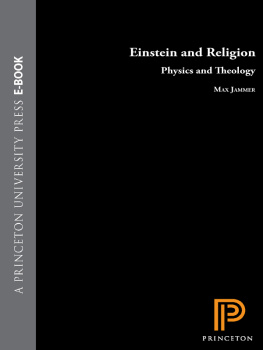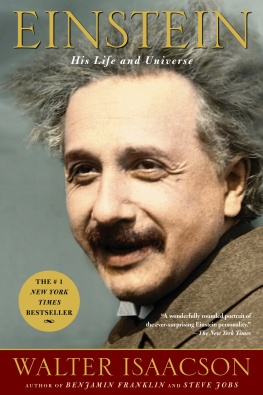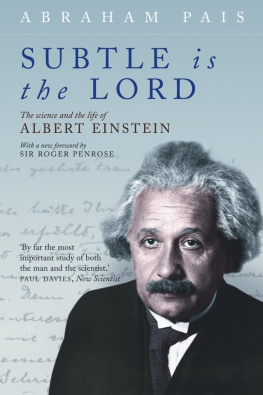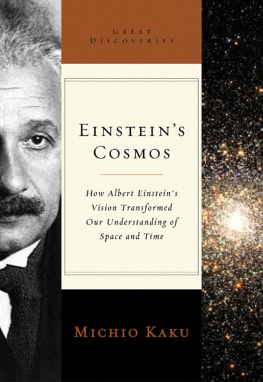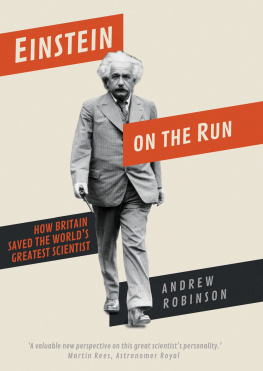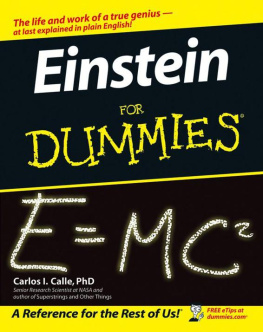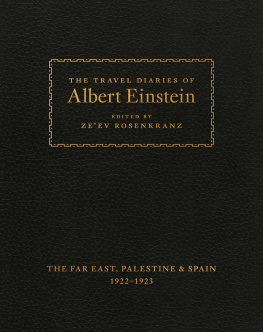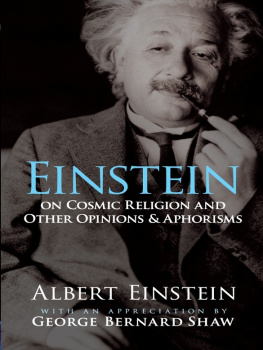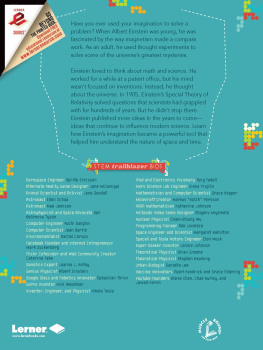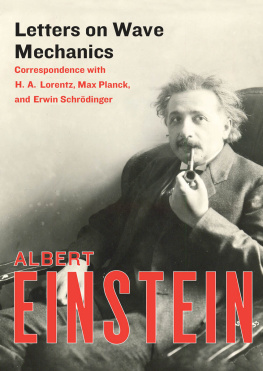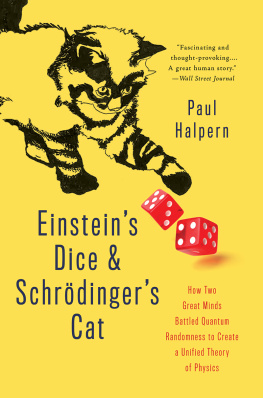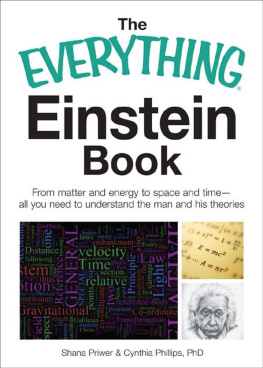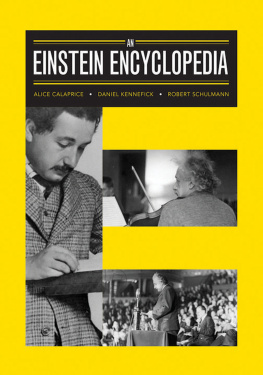Einstein Albert - Einstein and religion : physics and theology
Here you can read online Einstein Albert - Einstein and religion : physics and theology full text of the book (entire story) in english for free. Download pdf and epub, get meaning, cover and reviews about this ebook. City: Princeton, N.J, year: 2002, publisher: Princeton University Press, genre: Religion. Description of the work, (preface) as well as reviews are available. Best literature library LitArk.com created for fans of good reading and offers a wide selection of genres:
Romance novel
Science fiction
Adventure
Detective
Science
History
Home and family
Prose
Art
Politics
Computer
Non-fiction
Religion
Business
Children
Humor
Choose a favorite category and find really read worthwhile books. Enjoy immersion in the world of imagination, feel the emotions of the characters or learn something new for yourself, make an fascinating discovery.
- Book:Einstein and religion : physics and theology
- Author:
- Publisher:Princeton University Press
- Genre:
- Year:2002
- City:Princeton, N.J
- Rating:5 / 5
- Favourites:Add to favourites
- Your mark:
Einstein and religion : physics and theology: summary, description and annotation
We offer to read an annotation, description, summary or preface (depends on what the author of the book "Einstein and religion : physics and theology" wrote himself). If you haven't found the necessary information about the book — write in the comments, we will try to find it.
The philosophy of religion and the quest for spiritual truth preoccupied Albert Einstein--so much that it has been said one might suspect he was a disguised theologian. Nevertheless, the literature on the life and work of Einstein, extensive as it is, does not provide an adequate account of his religious conception and sentiments. Only fragmentarily known, Einsteins ideas about religion have been often distorted both by atheists and by religious groups eager to claim him as one of their own. But what exactly was Einsteins religious credo? In this fascinating book, the distinguished physicist and philosopher Max Jammer offers an unbiased and well-documented answer to this question.
The book begins with a discussion of Einsteins childhood religious education and the religious atmosphere--or its absence--among his family and friends. It then reconstructs, step by step, the intellectual development that led Einstein to the conceptions of a cosmic religion and an impersonal God, akin to the God of Spinoza. Jammer explores Einsteins writings and lectures on religion and its role in society, and how far they have been accepted by the general public and by professional theologians like Paul Tillich or Frederick Ferr. He also analyzes the precise meaning of Einsteins famous dictum Science without religion is lame, religion without science is blind, and why this statement can serve as an epitome of Einsteins philosophy of religion.
The last chapter deals with the controversial question of whether Einsteins scientific work, and in particular his theory of relativity, has theologically significant implications, a problem important for those who are interested in the relation between science and religion. Both thought-provoking and engaging, this book aims to introduce readers, without proselytizing, to Einsteins religion.
Einstein Albert: author's other books
Who wrote Einstein and religion : physics and theology? Find out the surname, the name of the author of the book and a list of all author's works by series.

